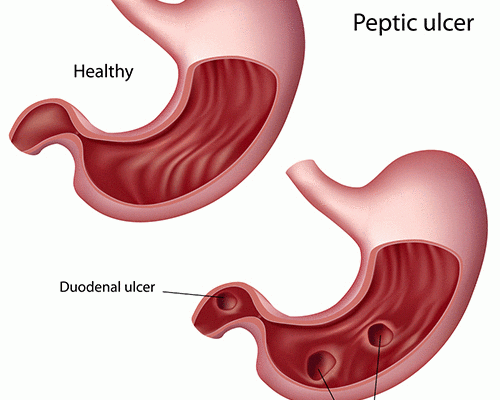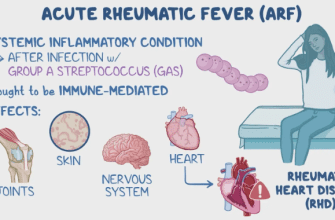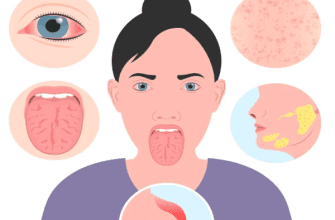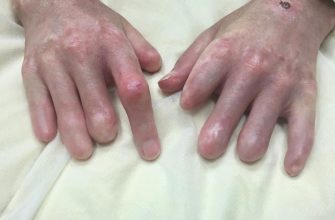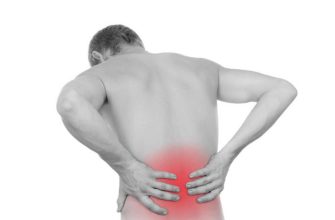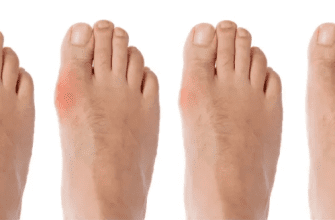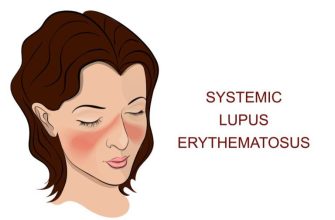A peptic ulcer is an open sore that develops on the stomach lining (gastric ulcer) or the upper part of the small intestine (duodenal ulcer). It occurs when stomach acid erodes the protective mucous layer, leading to pain, bleeding, or even perforation.
Etiology (Causes)
Main Causes:
- Helicobacter pylori (H. pylori) infection – Responsible for ~70% of gastric ulcers
- Long-term NSAID use (e.g., aspirin, ibuprofen) – Disrupts stomach mucus
- Excess stomach acid production (Zollinger-Ellison syndrome, stress)
- Smoking & alcohol – Worsen ulcer healing
- Severe stress (burns, trauma, critical illness → “stress ulcers”)
Less Common Causes:
- Radiation therapy
- Crohn’s disease affecting the stomach
- Viral infections (CMV, herpes)
Types of Peptic Ulcers
- Gastric ulcer – Inside the stomach
- Duodenal ulcer – First part of the small intestine (more common)
- Esophageal ulcer – In the esophagus (often from acid reflux)
- Bleeding ulcer – Can lead to anemia or hemorrhage
- Perforated ulcer – Hole in the stomach/intestine wall (medical emergency)
Symptoms
Common Signs:
- Burning stomach pain (worse on empty stomach, at night)
- Bloating & nausea
- Heartburn & acid reflux
- Loss of appetite & weight loss (in gastric ulcers)
Danger Signs (Complications):
- Vomiting blood (looks like coffee grounds)
- Black, tarry stools (melena = digested blood)
- Sudden severe abdominal pain (perforation risk)
- Dizziness/fainting (from blood loss)
Diagnosis
- Endoscopy (EGD) – Camera checks for ulcers + biopsy for H. pylori
- H. pylori Testing – Blood/stool test, breath test (urea breath test)
- Barium swallow X-ray – If endoscopy isn’t available
- Stool occult blood test – Checks for hidden bleeding
Treatment
1. Medications
- Proton pump inhibitors (PPIs) – Omeprazole, pantoprazole (reduce acid)
- Antibiotics – If H. pylori is present (clarithromycin + amoxicillin + PPI)
- H2 blockers – Ranitidine, famotidine (less potent than PPIs)
- Antacids – Temporary relief (Tums, Maalox)
- Cytoprotective agents – Sucralfate (coats the ulcer)
2. Surgery (Rare, for complications)
- Bleeding ulcer – Endoscopic clipping/cauterization
- Perforation – Emergency surgery to repair the hole
Prevention
✔ Treat H. pylori infection early
✔ Limit NSAIDs (or use with PPIs if necessary)
✔ Avoid smoking & excessive alcohol
✔ Manage stress (yoga, meditation)
✔ Eat smaller, balanced meals (spicy foods don’t cause ulcers but may irritate them)
When to See a Doctor
Emergency:
- Vomiting blood or black stools
- Severe, unrelenting abdominal pain
- Fainting/rapid heart rate (signs of bleeding)
Schedule a Visit If:
- Persistent stomach pain (2+ weeks)
- Unexplained weight loss
- Chronic heartburn/indigestion
How to Avoid Peptic Ulcers
- Wash hands frequently (prevents H. pylori infection)
- Use NSAIDs cautiously (take with food or PPIs)
- Limit alcohol & quit smoking
- Eat probiotic-rich foods (yogurt, kefir – may protect against H. pylori)
Final Note:
Most ulcers heal with proper medication & lifestyle changes, but ignoring symptoms can lead to life-threatening bleeding or perforation. If you have risk factors, get tested for H. pylori.
